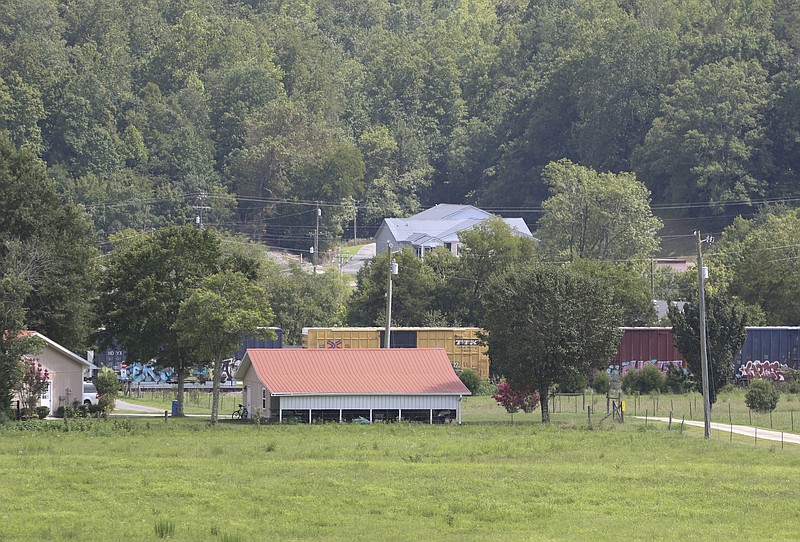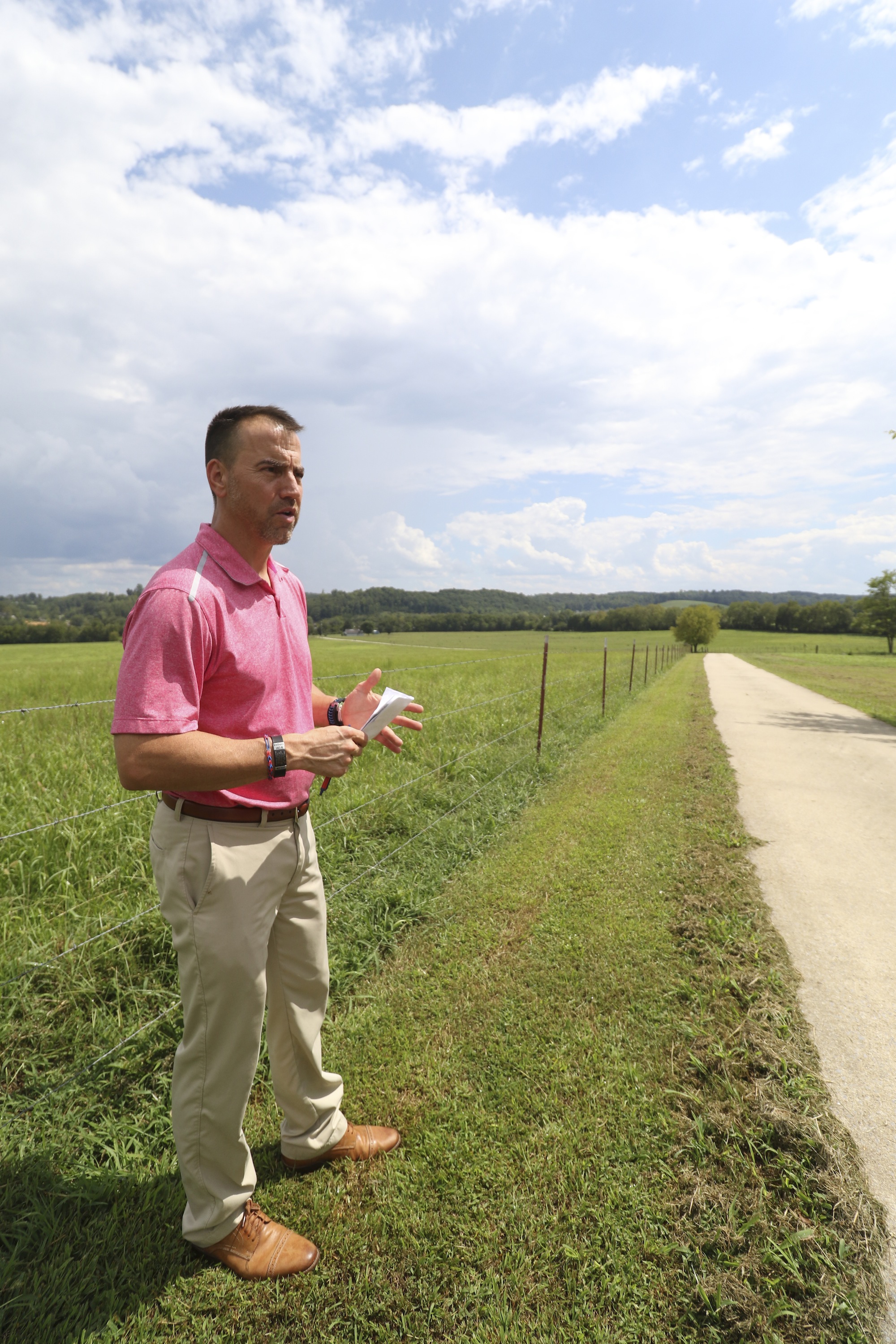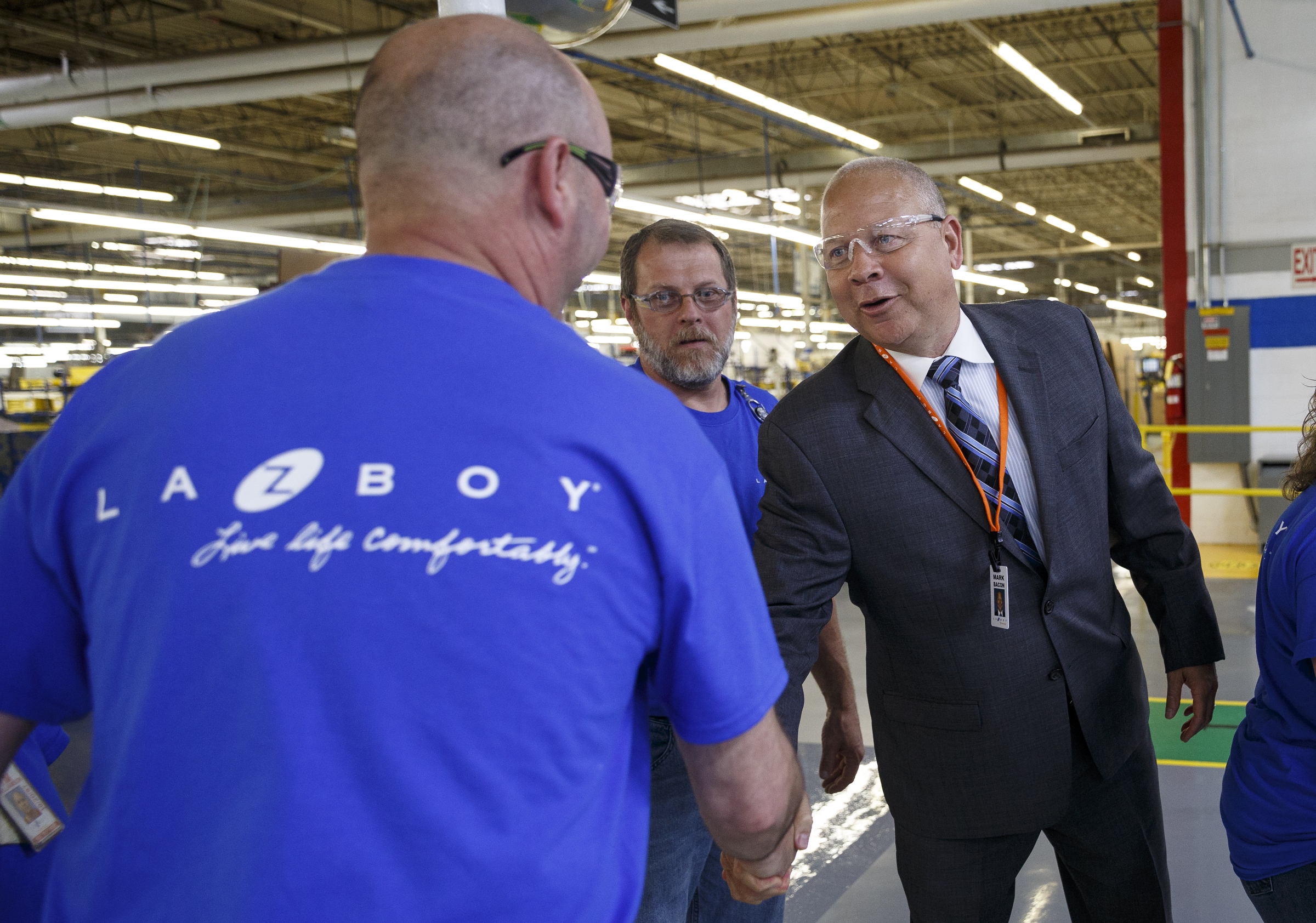DAYTON, Tenn. - Single-blade windshield wipers whisked a few remaining raindrops away, and Dennis Tumlin, sitting in the cab of his four-door Silverado pick-up truck, produced a site rendering dotted with hand-written notes in red, blue and black ink.
Here we are, Tumlin said, pointing out a rectangular plat of land highlighted in pink - an 87-acre piece of grassy farmland on the north end of Dayton, Tenn., bordering existing industrial property to the south and positioned against an active railroad to the east.
Tumlin is executive director of the Rhea Economic and Tourism Council, a post he's occupied nearly three years now. He has been a strong and vocal proponent of marketing Dayton as a bass fishing destination and expanding its lake infrastructure.
But now, Tumlin is up to something else.
In the next 30 days, Dayton city officials are set to close on a $2 million purchase of property which, when added to another recent acquisition, will virtually double the city's industrial property holdings. The purchase, upon closing, will be the largest move made by the city in economic development in four decades.
"This is the most important economic decision the city has made since La-Z-Boy," said Tumlin. "Period."
Looking beyond La-Z-Boy
La-Z-Boy alone is responsible for 1,400 jobs in Dayton, and has long been the city's biggest employer. The Michigan-based furniture maker opened a 300,000-square-foot plant here in the 1970s, and over the years has expanded its plant to the current 1.2 million-square-foot size.
The second-largest employer in town, car part-maker IAC Group, employs about 700 people.
While La-Z-Boy and IAC have been loyal industrial residents in Dayton, having a handful of manufacturers responsible for so many workers in a city of less than 10,000 also presents potential risks.
Within the next six weeks, Japanese-owned Daikin will close the doors of its Dayton plant, putting 600 people out of work. The plant (still known locally as Goodman) is moving its production to Texas. Daikin also has exercised a purchase option on the Dayton plant and will hold exclusive rights to the property, including the right to sell the property and at what price.
An additional 84 workers will lose their jobs when Fuji Film closes its plant in Dayton next spring.
Tumlin, standing on a rise overlooking the new, 87-acre addition to the city's industrial park, said the community is primed and ready to bring companies into the fold.
"This park will allow some diversity," he said.
Landing a major new industrial tenant in town could ease fears tied to another big, potential manufacturer closure or exit.
"When you're looking 20 years down the road, what is the best option if this is not the best option?" said Tumlin. "If you delay, the reality is this will be a subdivision in 20 years."
Site offers flat land, infrastructure
East of the Cumberland Plateau, you don't find many sites like this - flat, with infrastructure and proximity to road and rail.
"In eastern Tennessee, the topography of the terrain is challenging at times, in order to find larger parcels of industrial land that have rail access," said Sam Wills. "Finding 300 acres in east Tennessee with all those amenities, that's the challenge."
Wills is an Ohio transplant living in Rhea County and is a regional director for economic and community development for the state Department of Economic and Community Development.
The state naturally has a vested interest in helping local communities identify promising potential industrial land, if it lands major manufacturers here instead of across state lines.
With a major manufacturer like Volkswagen positioned only 35 minutes away, and Chattanooga running low on industrial land, Rhea County is well-positioned for an influx of jobs and investment - if it can accommodate such growth.
"If you don't have land, you don't have any opportunity for growth," said Wills. "They'll never come if you don't have land available."
In 2014, Walker County, Ga., spent $423,000 to purchase 460 acres north of Lafayette to create a publicly owned industrial park to lure and land new industry.
At Exit 20 off Interstate 75 in Bradley County, Tenn., work is ongoing at a 1.5 million-acre, publicly owned industrial park, which cost county and Cleveland tax payers roughly $6 million, plus the costs of running utilities.
"Some companies look for 25 acres. Some look for 500," said Wills. "Some of them look for 1,000, you just never know."
But in communities like Walker County, Ga., Bradley County, Tenn., and now Rhea County, "they've got to prep themselves," Wills said.
"The seven last, dying words of a community are, 'We've never done it like that before,'" he said.
Spec industrial building takes shape
Across the street from Daikin, the City of Dayton is constructing a 50,000-square-foot, speculative building for industrial use on one of two vacant properties in the city's industrial park. The spec building is designed with expansion in mind, capable of growing up to 165,000 square feet.
When the purchase of the new industrial land is complete, Manufacturers Road will extend near the spec building and connect the existing industrial park to the city's new property.
City officials plan to build a new, $5 million electrical substation on the new land to feed future, power-hungry tenants. The city is also in talks with TVA to secure an additional source of power. Currently, Dayton (which owns its own electrical utility, Dayton Electric) gets power from one source, and it comes from the west over Dayton Mountain.
Dayton Mayor Gary Louallen said securing a second source of electricity will cut down on power outages in the city and reduce the need for hours-long, overnight power cuts for repairs and maintenance.
Louallen is a driver in the expansion of the city's industrial property, alongside Tumlin. Chairman of the economic and tourism council, Louallen hired Tumlin for the directorship shortly after he was elected mayor, after serving as a city councilman.
Louallen said the expansion of Dayton's industrial property holdings was a long time coming.
"Dennis and I are like two car salesmen on a car lot with no vehicles to sell," he said. "And everybody wants us to sell cars."
Louallen and Tumlin have taken heat for spending money on bass fishing and tournament infrastructure and now for property and infrastructure costs to expand the industrial park.
"There are those who are condemning it, saying it's just farm land," said Louallen. "Well, it was farm land. Now it's industrial property."
He said the city is getting a deal on the new property, and that in Dayton, other industrial land is valued at roughly $20,000 an acre.
"We bought (the new property) for $12,000 an acre, and people are throwing stones at me," Louallen said.
Like Tumlin, he believes there will be a big payoff on the land, and that landing new industrial residents will prove the move right.
For Louallen and Tumlin, the proof lies 35 miles away in Chattanooga, at Enterprise South Industrial Park, where city and county officials similarly spent millions acquiring industrial land, gambling it would pay off by landing a monster tenant. That was before Volkswagen.
"People are not looking at $10- or $12-an-hour jobs," Louallen said, on the future he sees playing out in Dayton. "They're looking at $20- to $40-an-hour jobs."
Right now, the city is working with the state comptroller's office on payment options for the 87 acres north of town. The purchase is expected to be complete within 30 days.
Contact staff writer Alex Green at agreen@timesfreepress.com or 423-757-6480.


